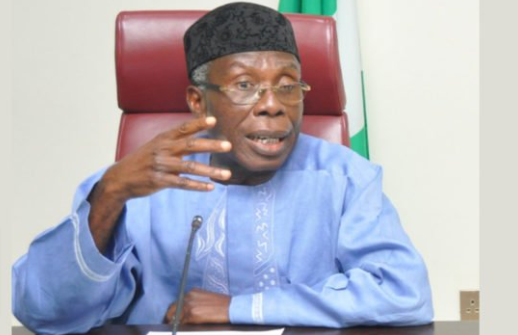The occasion was the opening ceremony of the 18th meeting of the National Executive Council of the People’s Democratic Party (PDP) on the 22nd of October, 2003 at Abuja. Party chairman, Audu Ogbeh made the “earth-shaking” revelation of what he called “the strange phenomenon going through the Nigerian political scene.” That strange malaise which Ogbeh discovered with the forensic insight of a Nobel laureate, was the “easy tendency by party members to show not only disloyalty but also hostility to party matters,” Hear! Hear!! But Mr. Ogbeh was not done. The discovery went into the realm even of theology, as Mr.Ogbeh was further reported to have warned that the PDP would no longer tolerate what he termed, heresy.
The PDP chairman warned party members against “quick resolve to jump the fence to the other camp, hack down the president or minister or a governor in the state, finance opposition, hoping that you can score a point because you are angry with fellow members. I must tell you that this is heresy of the worst order in politics.”
Apparently oblivious of the immunity which the floor of the National Assembly offers its members, Ogbeh also warned members of the flock in those chambers too, that “you cannot pick the floor of the Senate or House of Representatives to express (critical views of the PDP). You are looking for anarchy.”
We agree in principle that one of the cardinal aspects of the political party system in a democratic setting, is party discipline, whereby members of a party abide by programmes and principles of the political party they belong to. However, party discipline has a very important corollary adjunct, namely the presence of internal democracy, which is the life blood of the party system. It is assumed that all members of a political party, using the different organs of the party, have contributed to debates, which would enrich party programmes and policies. It is such a scenario, which makes party members willing to defend the programmes and policies of their parties.
Mr. Audu Ogbeh, if he is honest with himself, would know that it is this vital ingredient that has been missing in the internal workings of the People’s Democratic Party, since it came to power in 1999.
Party membership today has become a vehicle to get access to the lucrative recesses of power, and a healthy atmosphere conducive to debate has not been possible under the authoritarian proclivities of the Obasanjo presidency.
The policies which the PDP government has implemented under Obasanjo were either not part of the party’s manifesto, were not canvassed with the electorate, and have not been explained to party members in the National Assembly, and further afield. It would be very interesting for Mr. Ogbeh to tell us at which level of party leadership was it decided that the prices of petroleum products would be increased, which excluded the leadership and members of the PDP in the National Assembly, for example.
So a unique situation has emerged in the past four years whereby the most intense opposition to the PDP government has come, not from other parties which were successfully neutralised by the PDP behemoth, but from within the party itself. It is this background which explains the disarray within the PDP and the political system in Nigeria’s Fourth Republic. The glue that has held the party together is the lucre of power, the access to control the levers of patronage, plus the fear of what might happen to the individual that is sidelined from this system of prebendalism.
In the anarchic broth that has been cooking within the PDP, Obasanjo has often appeared to be beyond the discipline of his own party and in fact has been the trigger for many of the major crises which the party has faced in the past four years. The examples include the rejection of Okadigbo and imposition of Enwerem as Senate President, and the rigging of the party chairmanship against Chief Sunday Awoniyi, to mention a few.
Mr. Ogbeh’s effort to knock party members to toe the line can be a healthy move, but it must be done by going the whole hog. It’s no use trying to make your members follow sheepishly every detour that the party’s government takes without a vigorous internal system of debate. Debate, dissent, and consensus are the life blood of the party system in a democracy. These are qualities that must systematically be nurtured by the party’s leadership. There is nothing like heresy in the democratic process, and there are no sacred cows too.
Ogbeh and the PDP would do well to borrow a leaf from Africa’s oldest national liberation movement, the African National Congress (ANC), that is the ruling party in South Africa. The ANC does not see dissent and criticism as heresy, while Nelson Mandela submits to party discipline in the way that Obasanjo does not, within the PDP. Clearly, there is a lot of work for Mr. Audu Ogbeh to do to spruce up the PDP’s disciplinary system than throwing around threats. Threats just won’t do the trick.


